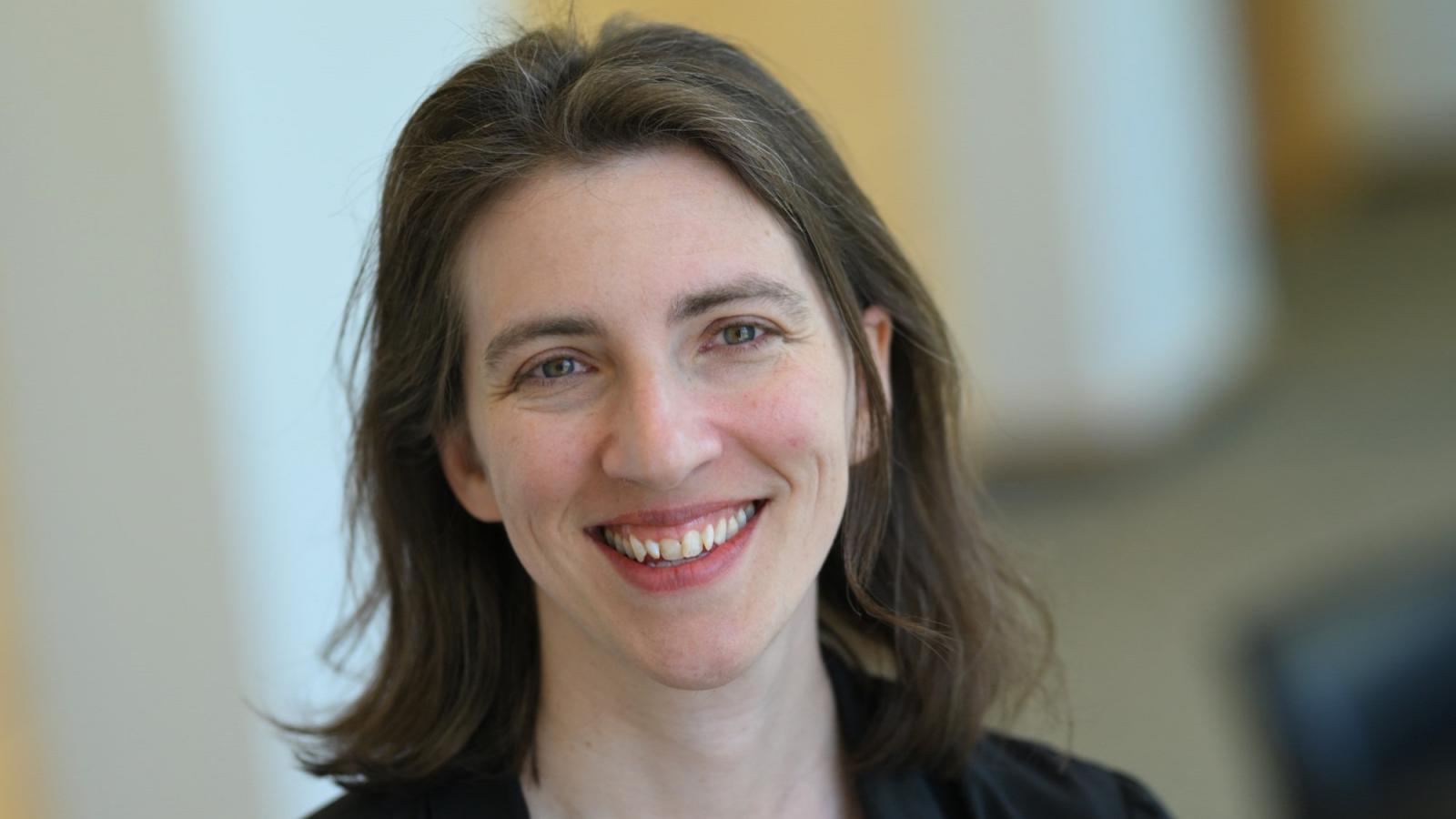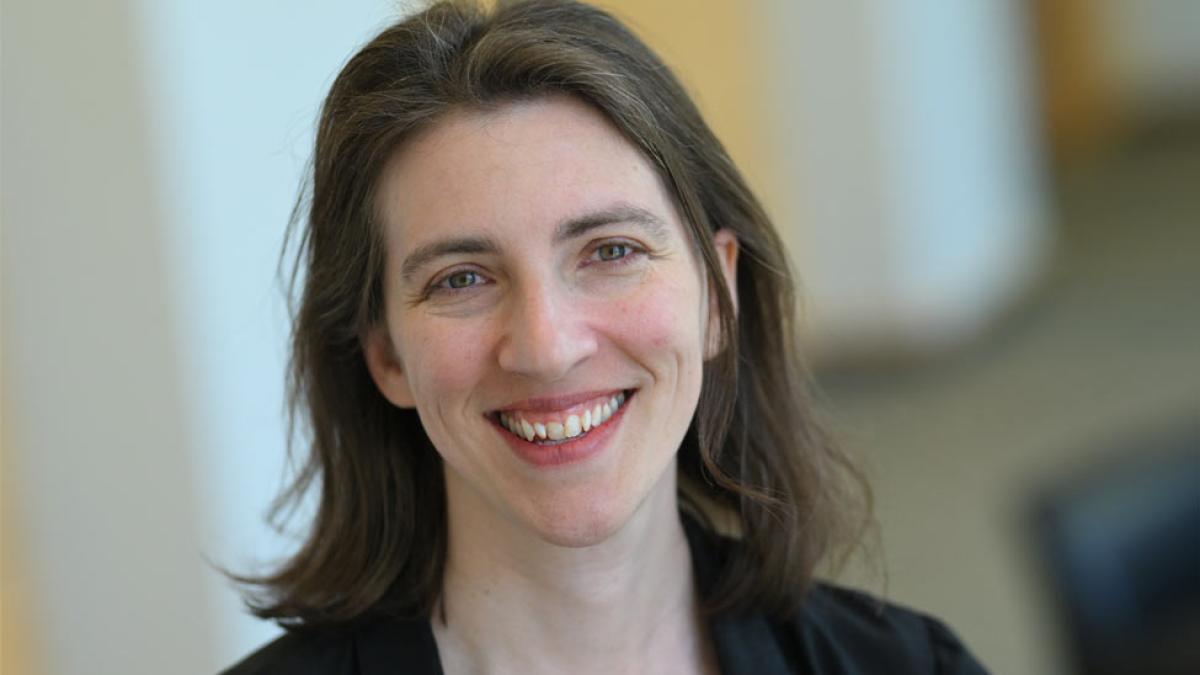Professor Margot Pollans appointed James D. Hopkins Professor of Law for 2023–2025
The Elisabeth Haub School of Law at Pace University is pleased to announce that Professor Margot Pollans has been appointed as James D. Hopkins Professor of Law for the 2023–2025 term.


The Elisabeth Haub School of Law at Pace University is pleased to announce that Professor Margot Pollans has been appointed as James D. Hopkins Professor of Law for the 2023–2025 term.
The title of James D. Hopkins Professor of Law is awarded to a member of the faculty for a two-year term in recognition of outstanding scholarship and teaching. The designation is considered to be among the Law School’s most significant faculty honors. The Hopkins Professor is selected by the Dean in consultation with the former holders of the Hopkins Chair. During the holder’s term, the James D. Hopkins Professor delivers a lecture that is open to the entire law school community and members of the public.
“Since joining the faculty in 2015, Professor Pollans has been a leader in building the national reputation of the Pace Food Law Center. Her scholarship in food and agriculture law, administrative law, and social justice, has been published in prestigious law journals and recognized by her peers including with Haub Law’s distinguished Goettel Prize for Faculty Scholarship in 2022. We are honored to have her serve as our next Hopkins Professor,” remarked Dean Horace E. Anderson Jr.
From 2021 to 2023, Professor Pollans was the Shamik and Adrienne Trivedi Faculty Scholar at Haub Law. Her scholarship in food and agriculture law, administrative law, and social justice has appeared in a variety of journals including in the California Law Review, Michigan Law Review, the Ohio State Law Journal, the Columbia Journal of Gender and Law, and the Harvard Environmental Law Review. She is also the co-author of a casebook, Food Law: Cases & Materials.
At Haub Law, Professor Pollans is the Faculty Director of the Pace Food Law Center and teaches Agriculture Law and the Environment, Food Systems Law, Property Law, and Administrative Law. She is also part of the Farm Bill Law Enterprise, a national partnership of law school programs working toward a farm bill that reflects the long-term needs of our society, including economic opportunity and stability, public health and nutrition, climate change mitigation and adaptation, public resources stewardship, and racial and socioeconomic justice.
Before joining Haub Law, Professor Pollans was the inaugural academic fellow at UCLA School of Law’s Resnick Program for Food Law and Policy. Previously, she was a Staff Attorney and Clinical Teaching Fellow at Georgetown University Law Center’s Institute for Public Representation, where she worked on a range of environmental litigation and supervised student clinicians. Following law school, Pollans clerked for the Honorable David Tatel of the U.S. Court of Appeals for the D.C. Circuit. In 2017, she was named “40 Under 40 Rising Stars in Food Policy” by the NYC Food Policy Center.
The James D. Hopkins Professor of Law is an endowed chair, which was established with contributions from alumni of the Elisabeth Haub School of Law at Pace University and members of the legal community in honor of Judge James D. Hopkins, who served as Interim Dean of the Law School from 1982 to 1983. His distinguished service to society and to the legal community was a shining example of the life one should live in the law.
Immediately prior to the appointment of Professor Pollans, Professor Noa Ben-Asher served as the James D. Hopkins Professor of Law. Learn more about the James D. Hopkins Professor of Law chair and its past recipients.
Alison Gives Us An Update, Bonus CR5 Performances, 25 Years of Elliot Smith's 'XO', Reading 'The Age of Innocence', Jerry Harrison of Talking Heads
For our second and final installment of our summer literature series, Summer School, in which we read a classic New York novel and invite you to read with us and participate on the radio, we spent the last 4 weeks reading Edith Wharton's 1920 novel, The Age of Innocence, winner of the Pulitzer Prize. The book is set in 1870s New York City, which follows Newland Archer and his romantic adventures with two women. Sarah Blackwood, associate professor of English at Pace University, is with us to talk about the importance of the novel.